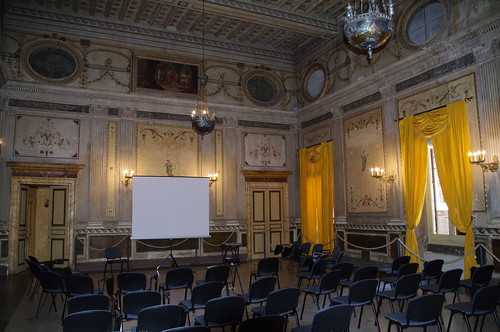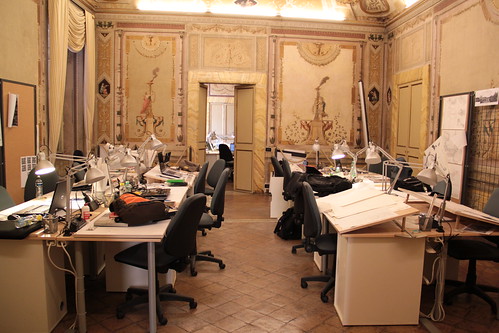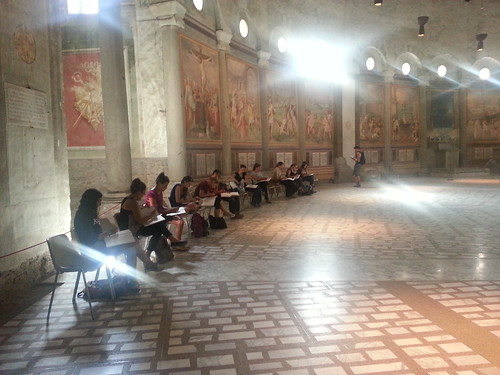Auburn students can now take core curriculum classes in Rome
Article body
Auburn students who are bitten by the summer travel bug can now complete their course credits in Rome, Italy.
The Auburn University Core Curriculum Program is a new study abroad opportunity which offers students an opportunity to complete two core curriculum courses over five weeks in a beautiful international setting.
This collaboration between the Office of International Programs, the College of Liberal Arts, the College of Sciences and Mathematics and the University of Arkansas Rome Center will host students from several American universities during June and July 2016.
"This is the beginning of a new type of core curriculum collaboration abroad," said Deborah Weiss, director of study abroad in the Office of International Programs. "It's going to be a long-term project, as we hope to rotate in other colleges with these popular courses."
Four core curriculum courses will be offered by four of Auburn's own faculty, with Honors credit offered when needed. With the advantage of having small class sizes, rather than the typical auditorium setting of large lecture halls, students will be able to take a hands-on approach to their education in Rome.
"Over the summer, parents at Camp War Eagle orientation sessions heard about this and were very excited about their students going on this type of program," said Weiss.
Classes offered
Students will have full access to lecture rooms in the very center of the city in Palazzo Taverna, one of the oldest palazzos in Rome. This 13th century palace is located within walking distance to the Piazza Navona, the Vatican, Pantheon, Coliseum and the Roman Forum.
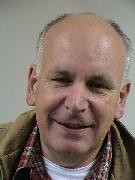 Mathematics and Statistics Professor Andras Bezdek will be teaching MATH 1680, or Calculus with Business Applications I. Bezdek, a Harry C. Knowles Professor, completed his undergraduate and graduate studies in Hungary. His class will tour sites with students from other core courses with an eye toward mathematical applications.
Mathematics and Statistics Professor Andras Bezdek will be teaching MATH 1680, or Calculus with Business Applications I. Bezdek, a Harry C. Knowles Professor, completed his undergraduate and graduate studies in Hungary. His class will tour sites with students from other core courses with an eye toward mathematical applications.
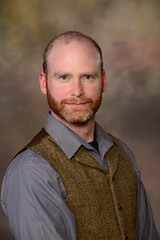 John Hawkins, lecturer in the Department of Geosciences, will be teaching GEOL 1100, or Dynamic Earth. This four credit hour course will survey important minerals and rocks, have discussion on the origin and classification of geologic structures and landforms in the area, and will include various tours outside of the classroom.
John Hawkins, lecturer in the Department of Geosciences, will be teaching GEOL 1100, or Dynamic Earth. This four credit hour course will survey important minerals and rocks, have discussion on the origin and classification of geologic structures and landforms in the area, and will include various tours outside of the classroom.
"Instead of looking at a hand sample of limestone, we can take a short walk and observe the Trevi Fountain," Hawkins said. "We can also talk about geologic hazards, such as volcanoes, and take a trip to Pompeii and see the devastation first hand. This experience will teach the importance of geology by seeing real world examples rather than reading about it in a lab manual."
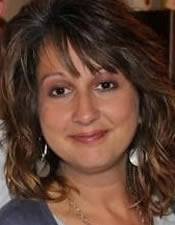 School of Communication and Journalism Instructor Terri Knight will educate her COMM 1000 class on Public Speaking about oral communication theory and practice in a public speaking setting with emphasis on content, organization, delivery and adaptation to the audience. This three credit hour course will focus special attention to speaking in multi-cultural environments and how to best adapt to those audiences.
School of Communication and Journalism Instructor Terri Knight will educate her COMM 1000 class on Public Speaking about oral communication theory and practice in a public speaking setting with emphasis on content, organization, delivery and adaptation to the audience. This three credit hour course will focus special attention to speaking in multi-cultural environments and how to best adapt to those audiences.
Knight, who has traveled to Central America and teaches an International Public Relations course during the traditional school year, has a special interest in how Americans relate, or sometimes fail to relate, to international individuals.
"America is a melting pot of so many cultures and we are becoming more and more diverse each day," Knight said. "Even if a student never chooses to live and work abroad, they will no doubt come in contact with a vast array of different ethnicities and cultures in their jobs and in their daily lives. The more they understand about other cultures the more they can adapt and interact with them. Whether you choose to be an engineer, a journalist, a teacher or anything else, we need to be sensitive to other cultures and the similarities and differences encountered."
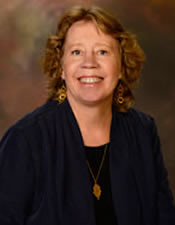 Jill Crystal, professor in the Department of Political Science, has previously traveled to Rome as a tourist, but will be exploring the city in more depth academically with her POLI 1050, or Global Politics and Issues, course. International topics, such as war and peace, transnational movements, terrorism and global energy, will be studied in a variety of learning styles during this three credit hour course.
Jill Crystal, professor in the Department of Political Science, has previously traveled to Rome as a tourist, but will be exploring the city in more depth academically with her POLI 1050, or Global Politics and Issues, course. International topics, such as war and peace, transnational movements, terrorism and global energy, will be studied in a variety of learning styles during this three credit hour course.
"It will be taught in a seminar setting in a former palace, rather than a large lecture hall," Crystal said. "While both Rome and the Haley Center have occasional pillars blocking the view, those in Rome tell a story rather than interrupting one. This class will also take you outside the walls of the classroom through excursions in Rome, which may include places such as NATO headquarters, the Vatican or an Italian think tank."
Each year the program will feature different colleges and classes, allowing sophomores, juniors and seniors to enjoy the benefits of studying abroad while earning credit hours toward their core curriculum.
"The experience of studying abroad is one like no other," Crystal said. "I invite all students to come join us in Rome for the opportunity of a lifetime."
For more information on the Core Curriculum Program, go to auburn.edu/studyabroad/core.
Related Media
Media interested in this story can contact Communications Director Preston Sparks at (334) 844-9999 or preston.sparks@auburn.edu.
Auburn University is a nationally ranked land grant institution recognized for its commitment to world-class scholarship, interdisciplinary research with an elite, top-tier Carnegie R1 classification, life-changing outreach with Carnegie’s Community Engagement designation and an undergraduate education experience second to none. Auburn is home to more than 30,000 students, and its faculty and research partners collaborate to develop and deliver meaningful scholarship, science and technology-based advancements that meet pressing regional, national and global needs. Auburn’s commitment to active student engagement, professional success and public/private partnership drives a growing reputation for outreach and extension that delivers broad economic, health and societal impact.



